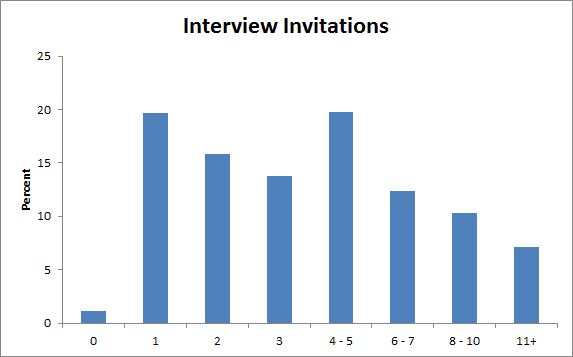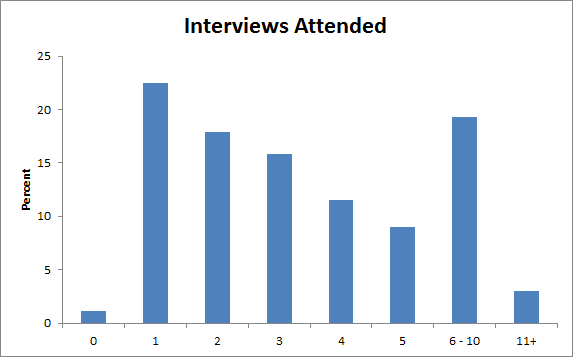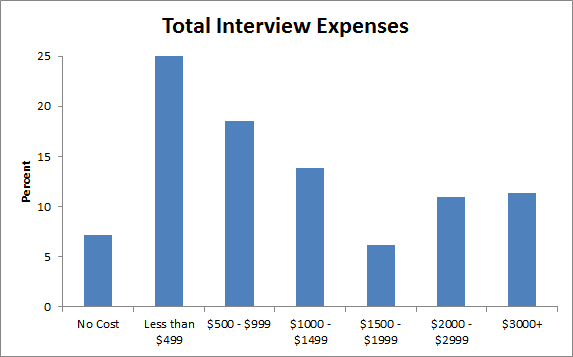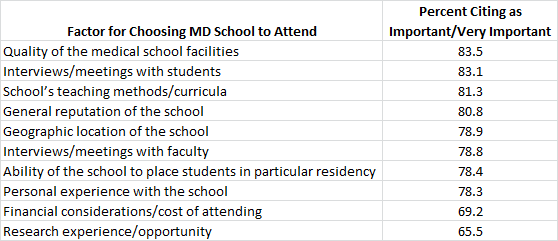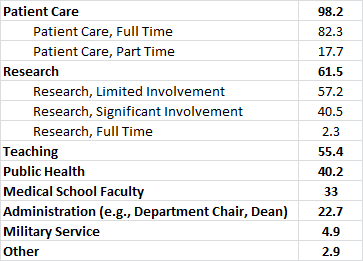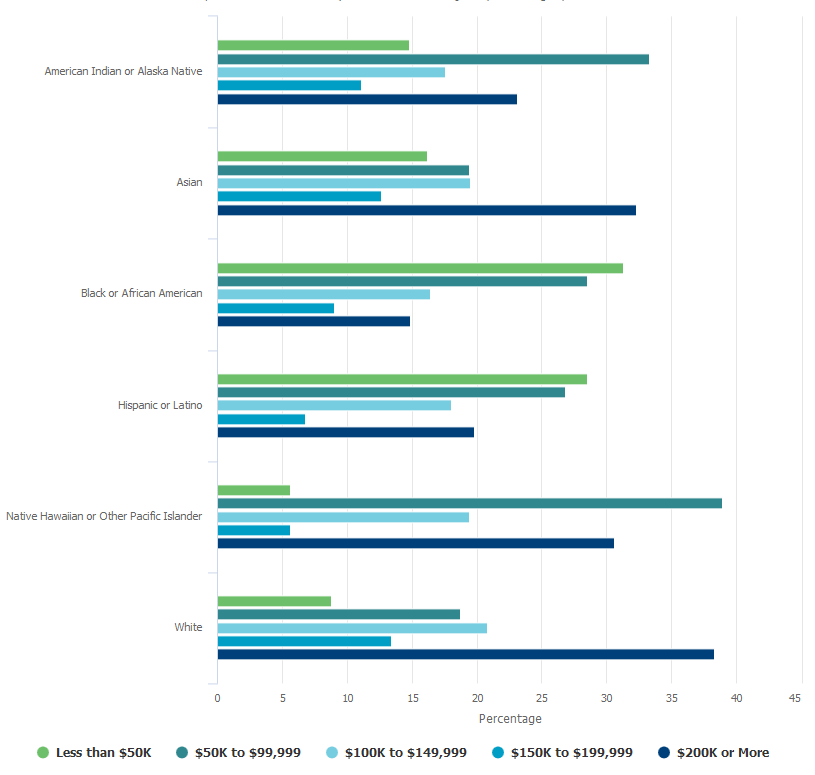- Joined
- Apr 6, 2014
- Messages
- 14,146
- Reaction score
- 22,786
Hello everybody, this one's a doozy.
As usual lately, I had a bunch of time to kill at work so I perused the AAMC's Matriculating Student Questionnaire for 2016. Thought I'd share what was interesting to me, especially what surprised me and seemed to differ from the usual advice and attitudes of SDN.
A lot of this is just easy visuals for some of the straightforward data, other parts I was messing around with combining/sorting. I'm gonna organize roughly chronologically along the premed process.
1. ̶W̶h̶y̶ When medicine?
On these forums, you often hear about the importance of clinical experiences and/or shadowing during college, because how else can you be sure you want to go after this career? Surprisingly, the majority of med students say they had "definitely decided" by the time they finished high school.
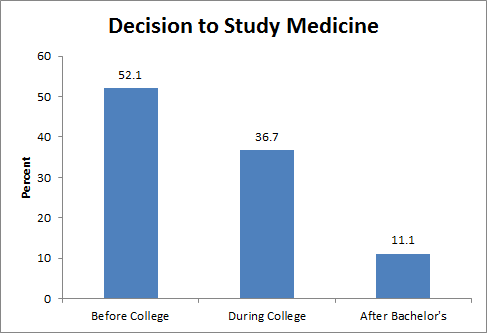
2. Premed
The survey gives us a glimpse of what the most common premed experiences were for successful applicants. Here are those experienced by 30%+ and here is the full set. Interesting to me is that 60% had lab research apprenticeship yet the MSAR reports much higher percentages with research/lab experience for pretty much every school.

What does undergrad tend to cost successful medical applicants? A whopping 65.0% report zero college debt whatsoever (compare to 30% debt free among college graduates nationally). You can see more AAMC info about percentages carrying debt, broken down by race, here. Among the less fortunate 35% that does have debt, this is the distribution:
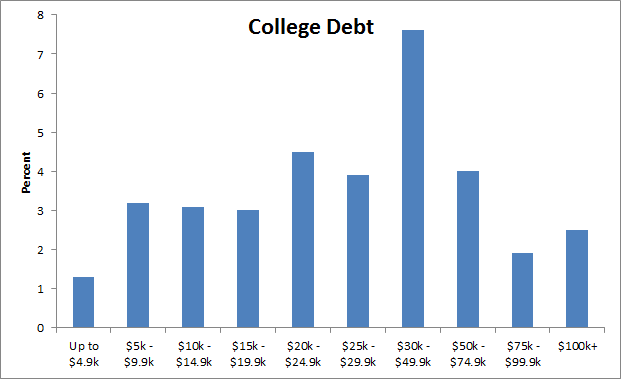
For those with debt the median was $27,000 (this time, much more similar to the national average collegiate debt of ~$29,000).
3. MCAT
SDN often emphasizes the importance of fully preparing and taking the exam one time. I was surprised that over a third of successful applicants took the MCAT multiple times.
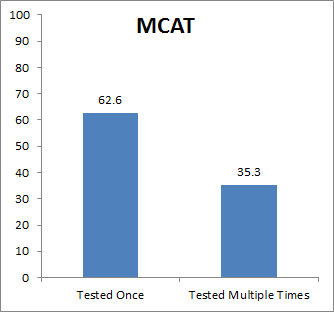
Among admitted retakers, 89.0% reported that they improved after the first sitting. The survey asked retakers what the single biggest cause of improvement was:
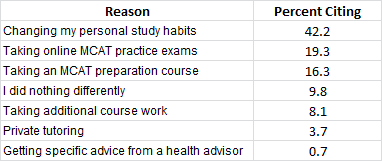
Glad to see private tutoring so low (bested only, of course, by premed advising).
4. Gap Years, Ages
The term "traditional applicant" is used to describe students who apply to medical school throughout their Senior year of college and matriculate in the Fall following graduation. Yet, you are already in the minority if you matriculate at age 22 or within a year of graduation.
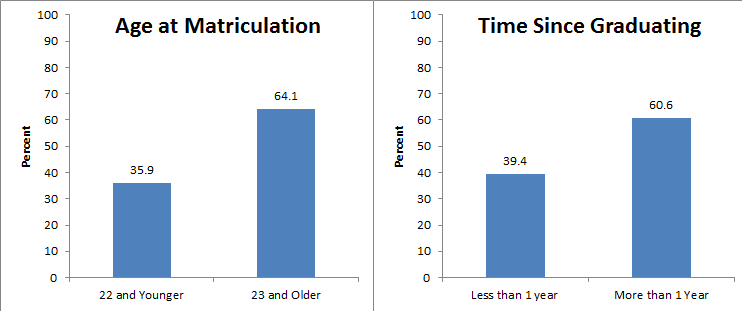
Based on the trend of the last four years, next season might see the first time that 1-2 gap years is the most common type of application, overtaking the traditional applicant.

What did people most often do during this gap time? (Note multiple items could be reported)
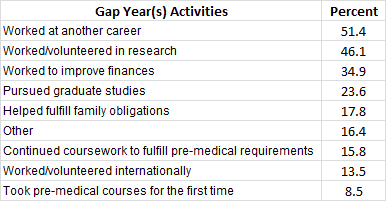
5. The Application Cycle - Secondaries
How many secondaries do people complete and what does it cost them?
Median for completed secondaries is 14, which over in WAMC will garner the advice to add more schools every single time! I was surprised at how many people complete only a handful, and I have no idea how 2% of people get admitted without completing any (or interviewing, as we will see later).
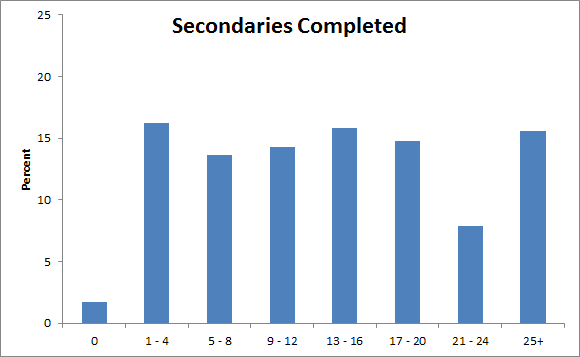
The costs at this stage are significant for most people, with the median at $1,000 and about a quarter paying $2000 - $3000+
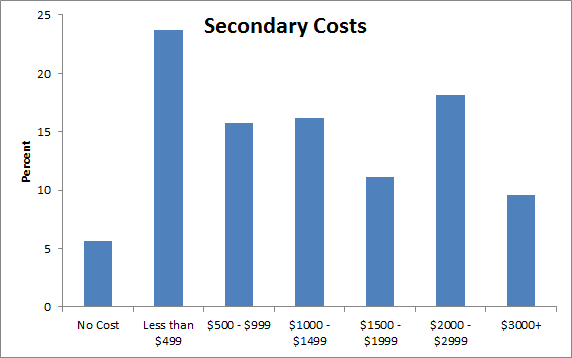
As usual lately, I had a bunch of time to kill at work so I perused the AAMC's Matriculating Student Questionnaire for 2016. Thought I'd share what was interesting to me, especially what surprised me and seemed to differ from the usual advice and attitudes of SDN.
A lot of this is just easy visuals for some of the straightforward data, other parts I was messing around with combining/sorting. I'm gonna organize roughly chronologically along the premed process.
1. ̶W̶h̶y̶ When medicine?
On these forums, you often hear about the importance of clinical experiences and/or shadowing during college, because how else can you be sure you want to go after this career? Surprisingly, the majority of med students say they had "definitely decided" by the time they finished high school.

2. Premed
The survey gives us a glimpse of what the most common premed experiences were for successful applicants. Here are those experienced by 30%+ and here is the full set. Interesting to me is that 60% had lab research apprenticeship yet the MSAR reports much higher percentages with research/lab experience for pretty much every school.

What does undergrad tend to cost successful medical applicants? A whopping 65.0% report zero college debt whatsoever (compare to 30% debt free among college graduates nationally). You can see more AAMC info about percentages carrying debt, broken down by race, here. Among the less fortunate 35% that does have debt, this is the distribution:

For those with debt the median was $27,000 (this time, much more similar to the national average collegiate debt of ~$29,000).
3. MCAT
SDN often emphasizes the importance of fully preparing and taking the exam one time. I was surprised that over a third of successful applicants took the MCAT multiple times.

Among admitted retakers, 89.0% reported that they improved after the first sitting. The survey asked retakers what the single biggest cause of improvement was:

Glad to see private tutoring so low (bested only, of course, by premed advising).
4. Gap Years, Ages
The term "traditional applicant" is used to describe students who apply to medical school throughout their Senior year of college and matriculate in the Fall following graduation. Yet, you are already in the minority if you matriculate at age 22 or within a year of graduation.

Based on the trend of the last four years, next season might see the first time that 1-2 gap years is the most common type of application, overtaking the traditional applicant.

What did people most often do during this gap time? (Note multiple items could be reported)

5. The Application Cycle - Secondaries
How many secondaries do people complete and what does it cost them?
Median for completed secondaries is 14, which over in WAMC will garner the advice to add more schools every single time! I was surprised at how many people complete only a handful, and I have no idea how 2% of people get admitted without completing any (or interviewing, as we will see later).

The costs at this stage are significant for most people, with the median at $1,000 and about a quarter paying $2000 - $3000+

Last edited:

